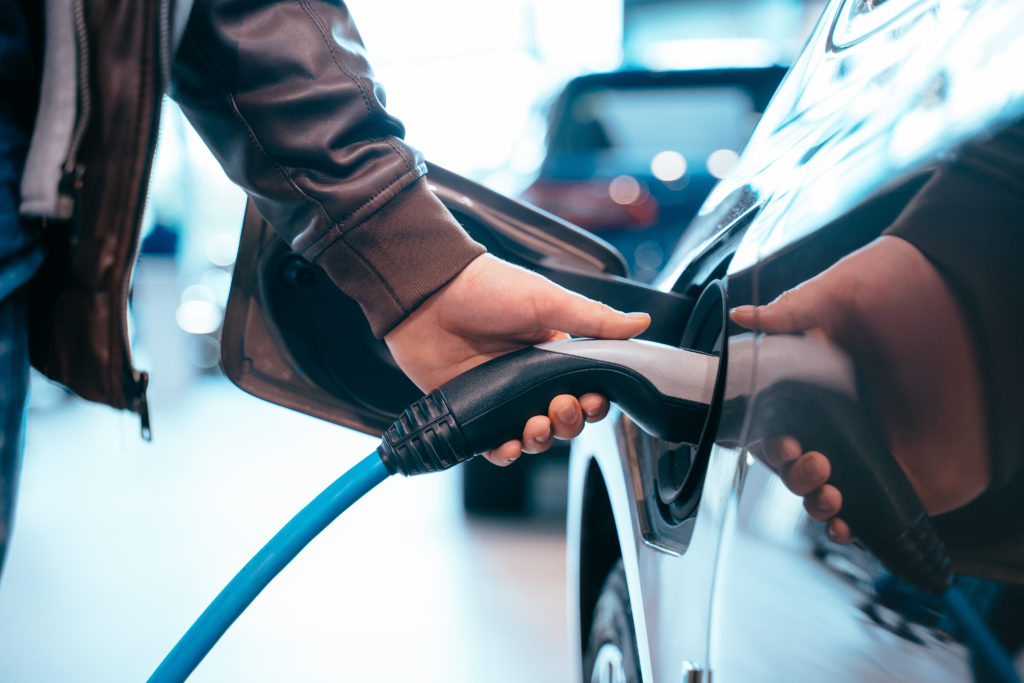A top priority of ours for the 2021 legislative session was the Transportation Modernization Package in the Transportation Bill (H.433) – a host of policies that would save Vermonters millions of dollars while reducing climate pollution.
Championed by a host of legislators, VPIRG’s amazing members, and our many allies, this year’s Transportation Bill contains the most significant investments to cut Vermont’s transportation pollution yet, while advancing our goal of creating a more accessible and affordable transportation system for all Vermonters. The Transportation Modernization Package includes almost $12 million for programs ranging from electric vehicle incentives, to bike and pedestrian infrastructure, to zero-fare public transit and EV charging infrastructure. It also starts a process to create the “transportation equity framework” we’ve been working to make happen this year (more on that below).
Specifically, the Modernization Package expands our vehicle incentive programs, making it even easier for low- to moderate-income Vermonters to purchase electric and high fuel-efficiency vehicles. With $3 million for the state EV incentive program and over $1 million for MileageSmart, the bill built on successful models piloted in recent years. It also created a new “Replace Your Ride” program, which will allow Vermonters to trade in vehicles 10 years or older for a $3,000 incentive on the purchase of an electric vehicle, electric bike, or public and private transit options.
Not including federal or utility incentives, these programs combined offer up to $8,000 on the purchase of an electric vehicle. And the bill also invests an additional $1 million in EV charging infrastructure, focused in particular on building charging stations at or near multiunit dwellings. With nearly one in three Vermont households being renters, and more living in other multiunit dwellings on top of that, providing charging solutions for those Vermonters is essential to achieving a fully electrified transportation sector. And with both low-income and BIPOC Vermonters being more likely to rent, providing charging options at multiunit dwellings is a critical equity consideration to ensure that all Vermonters can access the benefits of the transition to electric vehicles. While $1 million is just a start, we’re glad to see the state begin to address this need.
Electric vehicles will be a major part of our transition away from fossil fuels – and we must also focus on other innovative solutions to significantly reduce climate pollution. Alternative modes of transportation like walking, cycling, and public transit are affordable, sustainable options Vermonters that need to be made more accessible, which is why we also pushed for additional investments in bike and pedestrian infrastructure and continuing zero-fare transit through FY22. We’re glad to say that those initiatives were also ultimately funded.
The Transportation Bill also includes a significant step forward on equity in the transportation arena. Supporting a concept we had been working on and pushing for over the course of the legislative session, VTrans will work with the Regional Planning Commissions over the next six months in a public process to develop a “transportation equity framework” to advance “a transportation system that increases access to mobility options, reduces air pollution, and enhances economic opportunity for Vermonters in communities that have been underserved by the State’s transportation system.” There will be more to do next year and beyond to implement that equity framework and ensure it lives up to its promise, and we’re encouraged to see this first step embraced by both the Administration and the legislature.
There is much more to do, but this package will set the stage for the coming years – we’ll be fighting for bigger, bolder policies that will ensure we hit our targets as required under the Global Warming Solutions Act (GWSA). Regardless, this package is a big step in the right direction.
We’re looking forward to next year’s session but for now, we’re happy to see our leaders have supported these transformation policies that will not only help us get one step closer to meeting our climate requirements, but will also save Vermonters millions in the process.

